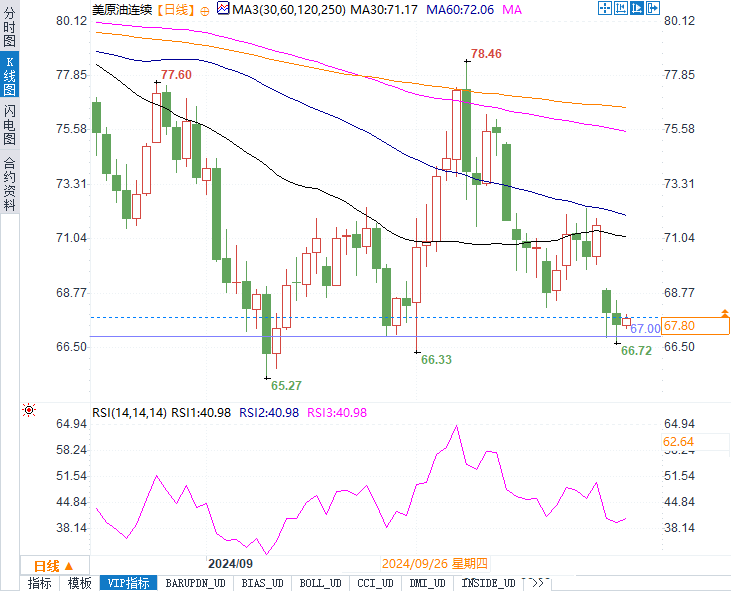Oil prices continue to fluctuate! Can OPEC+increase production and ceasefire agreement rewrite the market?
After two days of decline on Wednesday (October 30th), oil prices fluctuated near a one month low, and market sentiment remained cautious, mainly influenced by factors such as increased supply pressure and easing tensions in the Middle East.
Fundamental pressure: Outlook for OPEC+production increase and ceasefire agreement
The global crude oil market is facing increasing supply side pressure, especially with the news that OPEC+plans to increase daily production by 180000 barrels in December, further suppressing the rebound space of oil prices. Although OPEC+has reduced production by 5.86 million barrels per day, equivalent to 5.7% of global demand, the market seems to have priced the news of increased production.
In addition, the news that a ceasefire agreement between Israel and Hezbollah may be reached in the coming weeks has calmed market sentiment. If this agreement is implemented, the crude oil supply chain may be spared from the impact of conflict escalation, reducing the support factors brought by uncertainty in the oil market.
IG market strategist Yeap Jun Rong pointed out that the current market lacks sufficient positive stimulus, making it difficult for oil prices to sustain a rebound. The easing of the situation in the Middle East, coupled with OPEC+production plans, has significantly suppressed the trend of oil prices.
Message side: Inventory changes and demand uncertainty
According to data from the American Petroleum Institute (API), crude and refined oil inventories in the United States decreased last week, and inventory data typically supports oil prices in the short term. However, the official US government inventory data to be released later this week will be the focus of market attention. If the data confirms a decrease in inventory again, oil prices may receive temporary support as a result.
However, the uncertainty on the global demand side still exists. In addition, with the upcoming US presidential election and rising market wait-and-see sentiment, it is difficult for demand to have a clear direction in the short term.
Technical analysis: oscillation range and key support
From a technical perspective, oil prices are currently on the brink of oversold, with Brent crude trying to find support at around $70 per barrel. If this price can be held, it is expected to fluctuate within the range of $70 to $72 per barrel in the short term. If the support is breached, oil prices may test further support areas of $68 to $69 per barrel.
WTI crude oil is currently forming support around $67 per barrel. If this position can be stabilized, there is still hope for a short-term rebound to test the resistance of $68 per barrel. However, if the weak demand trend continues, WTI may fall into the $65/barrel area, and attention should be paid to the strength of low-level support at that time.

Price Trend Outlook
In summary, crude oil prices are currently in a context of mixed long and short factors, and the short-term trend is likely to continue a volatile pattern. Under the continuous pressure from the supply side, the rebound space of oil prices is limited, and short-term support is concentrated at the key positions of Brent $70 and WTI $67. If future US inventory data is lower than expected, there may be short-term support for oil prices; On the contrary, if demand continues to weaken or supply side pressure rises, oil prices may once again come under pressure and fall, and investors need to pay attention to the key support level tests in the market.
As of 16:04 Beijing time, Brent crude oil futures rose slightly by $0.27, or 0.38%, to $71.31 per barrel; US WTI crude oil futures rose $0.64, or 0.95%, to $67.82 per barrel.
Tips:This page came from Internet, which is not standing for FXCUE opinions of this website.
Statement:Contact us if the content violates the law or your rights
